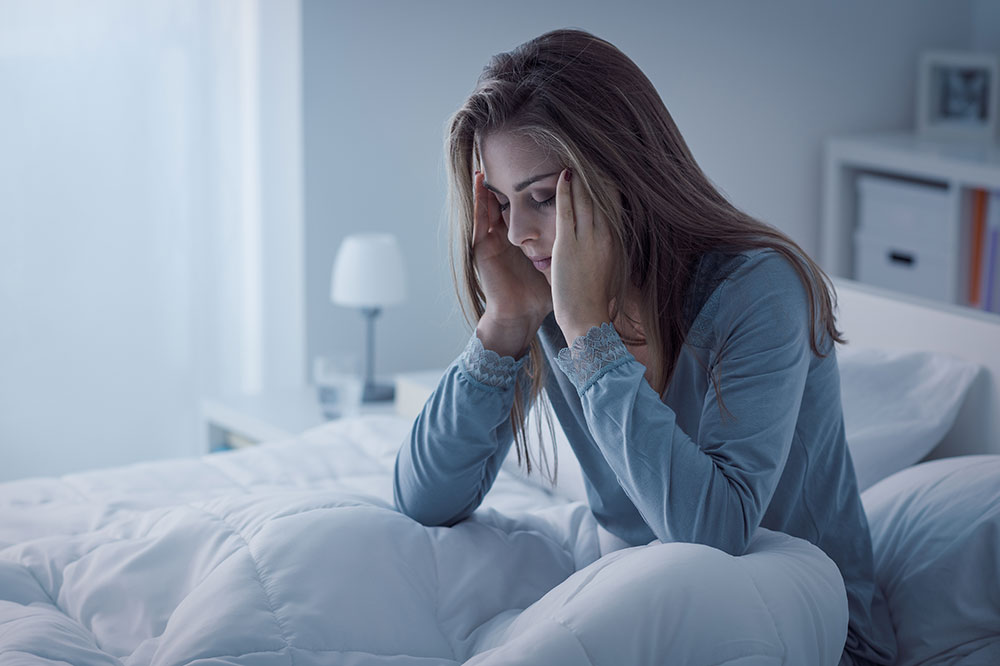5 common types of sleep disorders and their treatment
Adequate and quality sleep is extremely important for mental and physical well-being. People struggle with various kinds of sleep disorders that can cause extreme discomfort and prevent them from getting a good night’s sleep. This, in turn, can make them feel tired during the day, affect their concentration levels, and even cause depression. Let’s take a look at some of the common sleep disorders people suffer from and understand how they can be treated.

Types of sleep disorders
Here are the five most common types of sleep disorders:
Insomnia
Insomnia is the most prevalent sleep disorder among adults and is characterized by the inability to fall or remain asleep for long. It is often the result of anxiety, stress, digestion issues, or other underlying health conditions. For some people, insomnia can last for a few years, while others may only experience a few sleepless nights at a time.
Sleep apnea
Sleep apnea is a serious medical condition that can be chronic at times. A person with sleep apnea may stop breathing for a few seconds multiple times at night, which reduces the oxygen levels in their blood and triggers them to wake up and breathe normally again. This leads to disturbed and low-quality sleep.
Parasomnias
People with parasomnia display a quirky behavior while they’re asleep. People around them could often find them sleepwalking, sleep talking, groaning, having nightmares, bedwetting, grinding their teeth, or clenching their jaw. Sometimes, parasomnia is caused by underlying sleep disorders like sleep apnea, and treating the underlying condition can stop the parasomnia episodes in such cases.
Restless leg syndrome
Some people can’t sleep without moving their legs throughout the night. This is known as the restless leg syndrome and occurs when the individual experiences aches or a burning or tingling sensation in their legs. The exact cause of this sleep disorder is not yet known, but experts say that it can be triggered by underlying causes like Attention Deficit Hyperactivity Disorder (ADHD) and Parkinson’s disease.
Narcolepsy
People with narcolepsy suddenly feel extremely tired during the daytime, which can make them fall asleep without warning in the middle of another activity. Narcolepsy can result in sleep paralysis, meaning an individual cannot easily make bodily movements right after waking up. Experts say that it can be the result of neurological disorders like multiple sclerosis.
Treating sleep disorders
The treatment varies based on the type of disorder an individual is diagnosed with. The doctor will most likely put them on medications and recommend lifestyle changes to improve their sleep quality and patterns. Here’s how sleep disorders can be treated:
Lifestyle modification
Lifestyle changes can be more effective than medicines for the treatment of sleep disorders, and they don’t have any side effects either:
- Create and stick to a sleep schedule
- Avoid taking naps during the day
- Refrain from caffeine, nicotine, and alcohol consumption in the evening
- Drink less water before going to bed
- Avoid having a heavy meal late in the day
- Include more vegetable and fish in the diet
- Work out to reduce stress and anxiety
Medical treatments
Medical treatment for sleep disorders generally involves one or more of the following, depending on the type sleep disorder:
- Sleeping pills
- Medicines for allergies or cold
- Medications for any underlying health issues
- Breathing device or surgery, usually for sleep apnea
- Melatonin supplements

